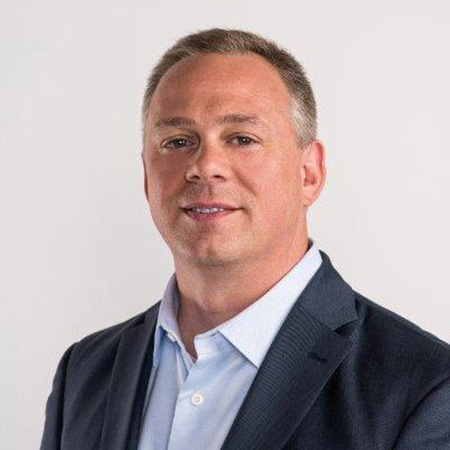The Agetech Revolution: Telehealth Boom Opens New Doors To $8Tn Economy For Patients 50+
Executive Summary
The world’s aging, increasingly tech-savvy population has created demand for device and digital health solutions that enable people to live longer, healthier, more independent lives. In this first article of a three-part series on Agetech, we highlight innovative telehealth companies that are making impacts by going beyond primary clinical needs to address mental health, quality of life, and underserved patients.
Millions of aging Americans’ desire to stay independent longer and age at home has created, by some estimates, a multi-trillion-dollar opportunity for start-ups and tech giants to provide digital and healthtech solutions.
“AgeTech” is a growing market of technology solutions to meet the needs of the 50-plus population and includes products, services and experiences across industries, all vying for a piece of a $8.3tn market opportunity, according to the AARP.
According to Andy Miller, AARP senior vice president of innovation and product development, AgeTech is an umbrella term that includes smart sensors and other technologies to ensure a home is functionally equipped for aging in place and to track mobility issues, such as falls and gait detection, as well as exercise at home and mental health.
Wearables to monitor patients’ health, together with remote monitoring platforms and telemedicine make up a large chunk of the market to help support aging and manage diseases.
“We do think about anything that’s going to make your life better,” said Miller, who leads the AARP Innovation Labs accelerator, which provides start-ups with resources and mentorship. To date, some 55 start-ups have “graduated” from the accelerator into the AgeTech Collaborative, an ecosystem that brings together industry leaders such as T. Rowe Price and Walgreens, as well as venture capital firms, to support pilot programs and partnering opportunities to develop solutions for the 50-plus community.
Jon Warner, CEO of Silver Moonshots and US advisory board chair for ORCHA, says the “mainstream marketplace” for AgeTech is significantly smaller than $8.3tn, which refers to all discretionary spending by the 50-plus age cohort in the US.
“So far, the biggest [opportunity] because of the pandemic has been telemedicine,” Warner told Medtech Insight, with remote patient monitoring, used to remit data back to telehealth operators in particular, ranking second.
“So far, the biggest [opportunity] because of the pandemic has been telemedicine.” – Jon Warner
The explosive growth in telemedicine and remote monitoring has been a “silver lining” of the COVID-19 pandemic and, in many cases, also has been a lifeline for the nation’s older adults and other Medicare beneficiaries.
Telehealth use surged during the early months of the pandemic, bolstered in March 2020 when the Centers for Medicare and Medicaid Services announced it would reimburse all providers for telemedicine services. Though virtual visits declined from that high as more people returned to in-person doctor visits, telehealth proponents say the technology platform is here to stay, quick to point to benefits including convenience and relief from travel time and transportation costs.
Jay Goss, managing director at the California-based venture capital firm Wavemaker Three-Sixty Health, which invests in health care start-ups at the seed funding stage, also is betting on telehealth and remote monitoring.
“The first reason we get excited about it is that’s the preference of most people,” Goss said in an interview. It will also become a necessity as the US faces a shortage of hospital beds and a looming physician and nursing shortage to care for the rising senior population. According to projections from the World Health Organization, people aged 60 and above will double globally to 2.1 billion by 2050.
“There is going to be more demand for health care services because the population is getting older …. and almost all medical issues get worse with age or become more prevalent with age,” he noted.
While telemedicine has limitations and isn’t appropriate for every medical situation, it can help ease the burden on physician and health care providers by monitoring chronic disease patients and those recovering from surgery.
New York-based Teladoc Health, Inc., which provides virtual access to health care providers, covering 450 medical subspecialties including chronic diseases, cancer and congestive heart failure, saw its revenue double from $553m in fiscal 2019 to $1.1bn in fiscal 2020. In 2021, revenues reached $2bn with 14.7 million virtual visits.
But the company has been struggling in 2022. Teladoc’s $18.5bn acquisition of Livongo Health, Inc., an app that allows people to manage chronic conditions, led to a $6.6bn impairment charge in the first quarter of this year. (Also see "HLTH 2020: Teladoc And Livongo Say Clients, Doctors Excited About Merger, Cross-Selling Deal With Florida Blue" - Medtech Insight, 13 Oct, 2020.)
During its first-quarter earnings call in April, Teladoc revised its 2022 revenue and adjusted EBITDA guidance downward with management citing aggressive pricing practices by competitors in the mental health space and slower-than-expected uptake in its chronic care segment. Despite these headwinds, Teladoc remains confident in its long-term prospects.
Another major player in the telehealth space is San Francisco-based Omada Health, which offers virtual care for diabetes prevention and management, hypertension, musculoskeletal conditions and behavioral health. In February it closed a $192m series E funding round led by Fidelity Management & Research Company.
One month later, Omada announced it is investing more deeply in a collaborative care model by embedding behavioral health support into all existing programs. Mental health issues often are siloed from other health issues but are deeply intertwined when it comes to overall health and wellbeing, the company said. Nearly half of Omada’s members show elevated behavioral health symptoms of anxiety and/or depression. Addressing these issues for people with medical conditions offers significant potential for cost savings.
Making Sustainable Business Out Of Moral Responsibility
Two start-ups, Cityblock Health, a Brooklyn-based healthtech spun out of Google’s urban innovation group Sidewalk Labs in 2017, and Chicago-based Oak Street Health, both target populations often challenged to access health care, and that includes many older adults. (Also see "US Medicare Payment Schedule Targets Mental Health And Underserved Areas" - Medtech Insight, 11 Jul, 2022.)
Cityblock Health is focusing on low-income and elderly Americans, primarily those who qualify for Medicaid, providing primary care, behavioral health, and chronic disease management services as well as social services to members in neighborhoods where it’s needed. The company has raised nearly $900m and has a valuation of almost $6bn, according to published reports.
Toyin Ajayi, who took over as Cityblock’s CEO in March from co-founder Iyah Romm, said she wants to “break the cycle of health care inequities by proving there is a sustainable business case – and moral responsibility – in delivering the best care to those with the most complex and costly needs in our society.”
Oak Street Health, a network of value-based primary care centers for adults on Medicare, announced in June it will open centers in Colorado in the fall, increasing its presence to 21 states. The public company currently operates in more than 140 centers.
Meanwhile, Maryland-based Precise Telehealth provides virtual care primarily to seniors with multiple chronic comorbid conditions through a multi-disciplinary team of providers.
Founded in 2017 by Michael Kerouac with seed funding from physicians, Precise Telehealth serves as an adjunct to the patient’s primary care physician by checking in with patients to help manage their care.
Goss, whose VC firm invested $420,000 into Precise Telehealth, said the firm’s business model is based on supporting poly-chronic patients, or people with multiple health challenges such as chronic diseases, substance abuse and learning disabilities.
“They’re the hardest people in the country to take care of. … They’re the most expensive people to take care of,” Goss said. He noted that patients’ once-weekly 20-minute visit with a tele-nurse is often the most important phone call for patients who don’t have a support system, including elderly people who age at home and feel lonely. It can make the difference between 12 emergency room visits a year versus three, according to Goss.
“They’re the hardest people in the country to take care off. … They’re the most expensive people to take care of.” – Jay Goss
“A lot of these people have learning disabilities. They [Precise] have a very specialized workforce that knows how to communicate on a video teleconference call with these patients,” Goss explained, calling it one of the differentiators to other telehealth offerings. The company’s care team is an extension of the primary care office to help patients better manage their care including reminders to see their doctor, take their medications and live a healthier life. Both entities share a medical record system, and Precise sends a monthly report to primary care doctors about patients’ health and well-being.
Precise gets reimbursed for providing “enhanced chronic care,” the combination of a telemedicine visit and remote monitoring. To date, the company has received a total of $8m in funding, “primarily from physicians who believe in the model,” Kerouac said. Operating in six states and working with about 25 medical practices, Precise serves 600 patients currently and has touched more than 5,000 since 2017, according to Kerouac.
The company is built around its impact on value-added contracting, such as with managed care organizations or accountable care organizations, whose reimbursement or bonuses are tied to their ability to manage costs.
“The growth path for the company is through relationships with these organizations by managing their highest-cost most-complex patients,” he said.
According to an AARP survey, interest in telehealth use remains high today when compared with 2020, with women, black Americans and those aged between 50 and 64 being the most likely to use virtual care. The survey, which polled 1,149 US adults between 24 February and 4 March, found that 32% of adults reported very high interest in using telehealth for themselves or a loved one.
“Continuing to keep an eye on its use (and challenges to its use) will remain critical to ensuring that midlife and older adults receive optimal health care,” AARP says.
[Editor’s note: In the second part of this Agetech series, Medtech Insight will explore tech solutions to help people stay mobile in the home.]


